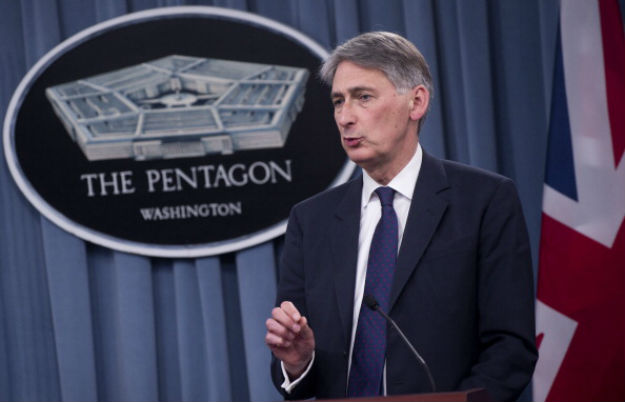
From Philip Hammond, E-Ring: It’s the NATO planning process and looking at the overall capability that European NATO needs to be able to field and making sure that in the next planning framework horizon we get the capabilities we need , we deal with the surpluses. Because the truth is, we have surplus capabilities in some areas and inadequacies in other areas, and it’s about shaping the pattern of investment across the alliance to address those gaps, those inadequacies, and to do it efficiently by collaborating together, "pooling and sharing" where that’s possible. Although, "pooling and sharing" is a term that’s been coined and frequently used and is not so easily delivered into an operational context. . . .
I think our approach, the U.K.’s approach, is so long as we sit around a very big table talking about "pooling and sharing," nothing will happen. So our preference is to start doing some small bilateral deals with individual partners and allies where we have sensible arrangements that we can build or build on. In fact, you got those things we already do, long before the term "pooling and sharing" was invented, that we can build upon.
But the real key, the real win here, as NATO has to address trying to do the same with less, is driving deployability and operability — effectiveness of NATO forces. Of course there’s an issue, as [former U.S. Defense] Secretary [Robert] Gates very clearly pointed out, about inadequate budget contributions in European NATO countries. I wouldn’t for a moment dispute that. I would caution about putting too much hope on being able to resolve that in any time soon, or maybe in any time, absent a major shock of the scale of 9/11 to the system. [It] isn’t clear to me what would persuade European public opinion to devote greater proportions of national resources to defense.
But there is huge headroom, even within the money we’re spending now, which is too little — but even within that, vast amounts of it are wasted. They’re wasted because of national duplication. They’re wasted because they’re being spent on the wrong things: excessive force size without deployable capability. I’m thinking of some allies in particular, where a focus on reshaping how we spend the budgets [inaudible] to smaller more deployable, more agile forces properly equipped for the kinds of tasks we need to do [that are] interoperable with the U.S. so that they can effectively deploy alongside either a U.S-led operation, or an Anglo-French led operation if it is a European-only mission. That is the way to go, and we have quite a lot of headroom within the NATO and European budget. Yes, it’s a small — too small budget overall. But if you walk through that budget and scrubbed all the stuff on which we are spending money that delivers no real military effect at all, you would find that you have a large pot which was usable to deliver real effect.
Excerpts from interview of British Defense Secretary Philip Hammond by Kevin Baron, FP National Security. (photo: Saul Loeb/AFP/Getty)
Image: getty%205%203%2013%20Philip%20Hammond.jpg
